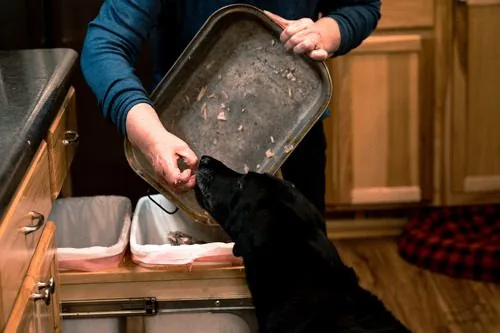Dog constipation can be uncomfortable for your pet and concerning for you as an owner. Recognizing the signs early and understanding how to help can make a significant difference in your dog’s health and well-being. In this article, we will explore the common signs of dog constipation and what you can do to assist your pet. If you suspect your dog is constipated, it’s important to seek professional veterinary advice. Call Birch Lake Animal Hospital at (651) 426-2246 or book an appointment online for personalized care and guidance.

What is Dog Constipation?
Constipation in dogs refers to infrequent or difficult passage of stool. It can be caused by various factors such as diet, lack of exercise, dehydration, or underlying medical conditions. Knowing the signs of dog constipation can help you address the issue promptly and ensure your dog remains healthy.
1. Infrequent Bowel Movements
One of the most noticeable signs of dog constipation is a reduction in the frequency of bowel movements. If your dog typically has one to two bowel movements per day and suddenly goes more than 48 hours without one, it could be a sign of constipation. It’s important to monitor your dog’s regular bathroom habits to notice any significant changes.
2. Straining or Difficulty Defecating
Dogs that are constipated often strain or have difficulty when attempting to defecate. You might notice your dog squatting for extended periods or making multiple attempts to pass stool without success. This straining can be uncomfortable for your dog and is a clear indication that something might be wrong.
3. Hard, Dry Stools
When your dog does manage to pass stool, it may be hard, dry, and small. Normal dog stools should be firm but not hard, with a moist texture. Hard, dry stools can indicate dehydration or inadequate fiber intake in your dog’s diet, both of which can contribute to constipation.
4. Abdominal Discomfort
Constipated dogs often show signs of abdominal discomfort or pain. This can manifest as whining, crying, or restlessness. You might also notice your dog’s abdomen appears swollen or feels hard to the touch. Abdominal discomfort is a serious sign that warrants veterinary attention.
5. Loss of Appetite
A decrease in appetite can be another sign of constipation. When your dog is unable to pass stool, it can lead to a feeling of fullness or discomfort, which may result in reduced interest in food. If your dog’s eating habits change suddenly, it’s essential to investigate further.
6. Lethargy
Constipation can make your dog feel unwell and less energetic than usual. Lethargy, or a noticeable decrease in activity levels, is a sign that something is amiss. If your typically active dog seems unusually tired or reluctant to move, constipation could be the culprit.
7. Scooting or Licking Anal Area
Dogs with constipation may try to relieve their discomfort by scooting or excessively licking their anal area. This behavior can be an attempt to stimulate bowel movements or alleviate irritation caused by hard stools. While scooting can also indicate other issues, such as anal gland problems, it’s a symptom worth noting in the context of constipation.
How to Help Your Constipated Dog
Recognizing the signs of constipation is the first step. Here are some steps you can take to help alleviate your dog’s discomfort:
- Increase Fiber Intake: Adding fiber to your dog’s diet can help regulate bowel movements. High-fiber dog foods, canned pumpkin, or supplements can be effective. Always consult your veterinarian before making significant changes to your dog’s diet.
- Ensure Adequate Hydration: Dehydration can lead to constipation, so it’s important to make sure your dog has access to fresh water at all times. Encouraging your dog to drink more can help soften stools and promote regular bowel movements.
- Encourage Regular Exercise: Physical activity stimulates digestion and helps prevent constipation. Make sure your dog gets regular exercise tailored to their age, breed, and health condition. Daily walks and playtime can make a significant difference.
- Monitor Your Dog’s Diet: Avoid giving your dog table scraps or bones, which can contribute to constipation. A balanced, vet-recommended diet is crucial for maintaining your dog’s digestive health. Your veterinarian can help you choose the best diet for your dog’s needs.
- Visit Your Veterinarian: If you notice any signs of constipation, it’s important to consult your veterinarian. They can perform a thorough examination, identify the underlying cause, and recommend appropriate treatments. In some cases, constipation can be a sign of a more serious health issue that requires professional attention.
When to See a Veterinarian
While mild cases of constipation can often be managed at home with dietary changes and increased hydration, more severe cases require veterinary care. If your dog has not had a bowel movement for more than 48 hours, is in visible pain, or shows signs of vomiting, lethargy, or bloating, contact Birch Lake Animal Hospital immediately.
Diagnostic Tests
Your veterinarian may recommend diagnostic tests such as X-rays, ultrasounds, or blood work to determine the cause of constipation. These tests can help identify any blockages, obstructions, or underlying medical conditions that need to be addressed.
Medical Treatments
Depending on the severity of constipation, your veterinarian might suggest medications, enemas, or other treatments to relieve your dog’s symptoms. In some cases, surgical intervention may be necessary to remove blockages or treat underlying conditions.
Maintaining Your Dog’s Digestive Health
Preventing constipation is key to maintaining your dog’s overall health. Regular check-ups with your veterinarian, a balanced diet, adequate hydration, and regular exercise are all essential components of digestive health. By staying vigilant and proactive, you can help ensure your dog remains happy and healthy. If you notice any signs of constipation in your dog, call Birch Lake Animal Hospital at (651) 426-2246 or book an appointment online. Our team is here to provide the best care and support for your beloved pet.
Recent Posts
About Birch Lake Animal Hospital
The staff at Birch Lake Animal Hospital seeks to provide the best possible medical care for our highly-valued patients and clients.





